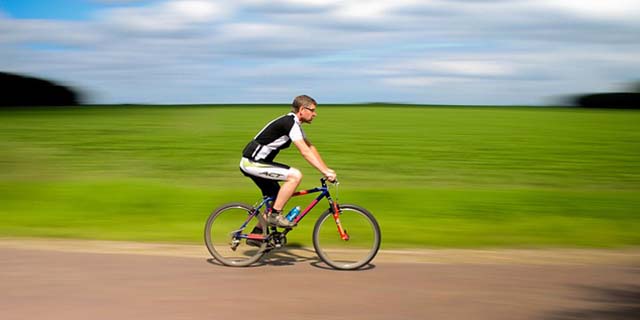
What is Air Conditioner Short Cycling?
Air conditioner short cycling refers to the phenomenon where an air conditioning unit frequently turns on and off in short intervals, rather than running for a longer, more efficient cycle. This can occur due to various reasons, including an oversized unit, thermostat issues, clogged air filters, or refrigerant problems. Short cycling not only leads to increased energy consumption and higher utility bills but also causes unnecessary wear and tear on the system, potentially shortening its lifespan. Addressing the underlying causes is essential for maintaining optimal performance and ensuring comfort in indoor environments. **Brief Answer:** Air conditioner short cycling is when an AC unit turns on and off rapidly instead of running continuously, often due to issues like being oversized, thermostat malfunctions, or clogged filters. It can lead to higher energy costs and reduced system lifespan.
What is Air Conditioner Short Cycling?
Air conditioner short cycling refers to the phenomenon where an air conditioning unit frequently turns on and off in short intervals, rather than running for a longer, more efficient cycle. This can occur due to various reasons, including an oversized unit, thermostat issues, clogged air filters, or refrigerant problems. Short cycling not only leads to increased energy consumption and higher utility bills but also causes unnecessary wear and tear on the system, potentially shortening its lifespan. Addressing the underlying causes is essential for maintaining optimal performance and ensuring comfort in indoor environments. **Brief Answer:** Air conditioner short cycling is when an AC unit turns on and off rapidly instead of running continuously, often due to issues like being oversized, thermostat malfunctions, or clogged filters. It can lead to higher energy costs and reduced system lifespan.


Technique of Air Conditioner Short Cycling?
Air conditioner short cycling refers to the phenomenon where an air conditioning unit frequently turns on and off in short intervals, rather than running through a complete cooling cycle. This can be caused by various factors, including an oversized AC unit, a malfunctioning thermostat, or issues with the electrical system. Short cycling not only leads to inefficient energy use but also places undue stress on the system, potentially shortening its lifespan and leading to costly repairs. To address this issue, it's essential to ensure proper sizing of the unit, regular maintenance, and accurate thermostat calibration. **Brief Answer:** Air conditioner short cycling is when an AC unit turns on and off rapidly, often due to being oversized or having a faulty thermostat. It causes inefficiency and can damage the system over time. Regular maintenance and proper unit sizing can help prevent this issue.
Training related to Air Conditioner Short Cycling?
Training related to air conditioner short cycling focuses on understanding the causes, effects, and solutions for this common HVAC issue. Short cycling occurs when an air conditioning unit turns on and off frequently, failing to complete a full cooling cycle. This can lead to increased energy consumption, reduced efficiency, and potential damage to the system. Training typically covers topics such as identifying signs of short cycling, diagnosing underlying problems (like refrigerant issues, thermostat malfunctions, or oversized units), and implementing corrective measures. Technicians learn how to optimize system performance and ensure longevity through proper maintenance and adjustments. **Brief Answer:** Training on air conditioner short cycling involves learning to identify, diagnose, and resolve the frequent on-off cycling of AC units, which can lead to inefficiency and damage. It emphasizes understanding causes like refrigerant issues and oversized systems, and teaches technicians how to maintain optimal performance.

Advertising space for rent

FAQ
-
What is cycling?Cycling is a physical activity and sport that involves riding a bicycle for exercise, recreation, or competition.
-
What are the health benefits of cycling?Cycling improves cardiovascular fitness, strengthens muscles, enhances flexibility, and aids in weight management.
-
What types of bicycles are there?Common types include road bikes, mountain bikes, hybrid bikes, and electric bikes, each designed for different riding environments.
-
How do I choose the right bicycle?Consider factors like your riding style, terrain, comfort, and budget. Road bikes are good for paved roads, while mountain bikes are designed for rough terrain.
-
What should I wear when cycling?Wear comfortable, moisture-wicking clothing, a helmet, cycling gloves, and padded shorts for comfort and protection.
-
How do I stay safe while cycling?Always wear a helmet, follow traffic rules, use lights and reflectors at night, and ensure your bike is well-maintained.
-
What is the best way to train for cycling?Training involves building endurance with long rides, improving strength through intervals, and working on technique with drills.
-
How does cycling compare to running for fitness?Both activities improve cardiovascular health, but cycling is lower impact on the joints, making it easier on the knees and hips.
-
What should I eat before and after cycling?Before cycling, consume a light meal rich in carbohydrates. After cycling, eat a mix of carbohydrates and protein to aid recovery.
-
What are cycling events and races?Events range from local charity rides to professional races like the Tour de France, which is one of the most famous cycling competitions in the world.
-
How do I improve my cycling performance?To improve, focus on building endurance, increasing speed with interval training, and ensuring proper bike fit and technique.
-
What is a bike fit?A bike fit involves adjusting your bicycle to suit your body measurements, helping to improve comfort, prevent injuries, and enhance performance.
-
How can I maintain my bicycle?Regular maintenance includes checking tire pressure, lubricating the chain, cleaning the bike, and ensuring brakes and gears are functioning correctly.
-
What is the difference between road bikes and mountain bikes?Road bikes are lightweight and optimized for smooth, paved roads, while mountain bikes are designed for rugged terrain with suspension systems and wider tires.
-
How do I protect the environment while cycling?Cycling is an eco-friendly mode of transportation that reduces carbon emissions. Ensure to maintain your bike, avoid littering, and choose eco-friendly products.
